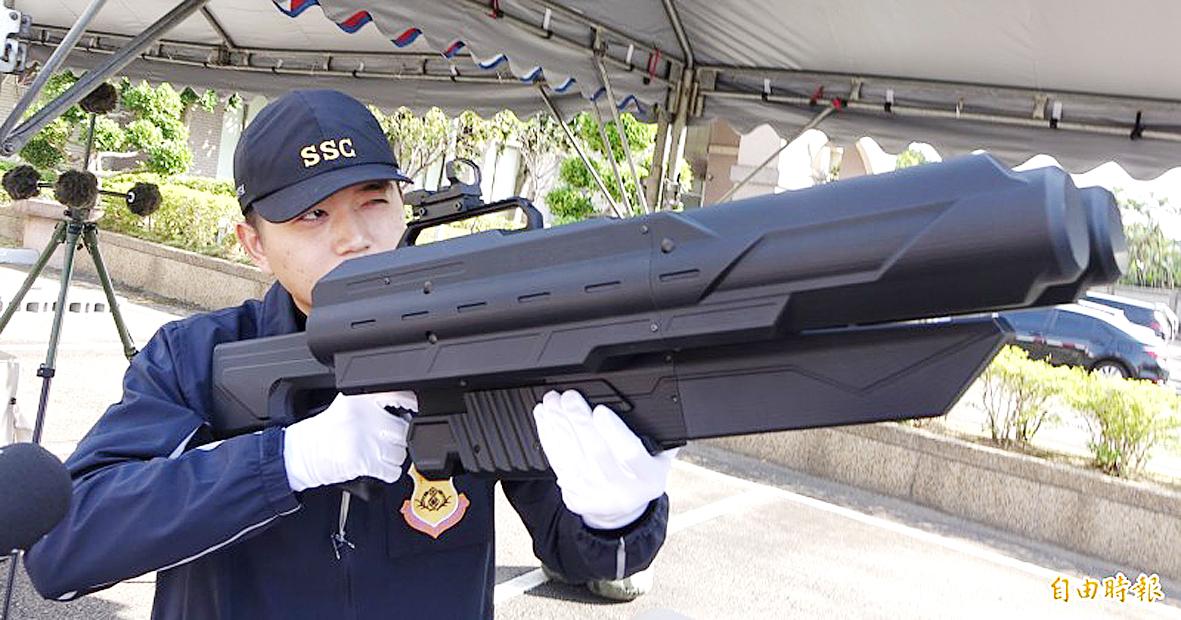The military is looking into countermeasures against the possible use of a “drone swarm” as part of a Chinese “decapitation strike” against Taiwan, a military official said on Saturday.
The comments came after China’s Xinhua news agency reported that Chinese President Xi Jinping (習近平) on Thursday visited the Chinese People’s Liberation Army (PLA) Air Force Aviation University, where he toured its drone experiment labs.
According to the report, Xi instructed the university to put more effort into drone research as the technology is changing how war is conducted, and told the school to improve its production facilities related to drones and step up live combat training for drone operators.
Beijing has been developing uncrewed aerial and marine vehicles, and has seen marked improvement in its capabilities to use drones, large and small, in strategic deployments and reconnaissance, said a Taiwanese military official, who declined to be named.
The PLA has been focusing on the drone swarm tactic, the official said, adding that the “possibility of Chinese agents in Taiwan operating multiple drones and attacking the Presidential Office, the Executive Yuan or strategic facilities, such as radar stations, cannot be excluded.”
The military has contingencies to handle sudden PLA invasions, attempted decapitation strikes and incidents incited by Chinese agents, and these have been simulated in Han Kuang military exercises, the official said.
Certain agencies have been allocated funding to purchase drone jamming equipment, which has been tested and proven to be effective in countering a potential drone swarm attack on Taiwan, the official added.
In related news, national defense commentator Chieh Chung (?仲) on Friday said that an increase in Chinese nighttime flights near Taiwan’s air defense identification zone (ADIZ) is meant to send a message, to Taiwan and others in the region, that the Chinese air force has significantly improved its combat capability and equipment.
At 7pm on Thursday and 1pm on Friday, PLA jets were sighted in Taiwan’s ADIZ before being chased away, according to reports, although the Ministry of National Defense has not confirmed the sightings, saying that it was “closely monitoring local sea and air activity.”
The first instance of a nighttime sighting of a PLA aircraft near the ADIZ was on March 16, the ministry has said.
That the PLA can overcome the high risk and difficulty in nighttime instrument flights shows a marked improvement in their flight guidance capability and command, control, communications, computer, intelligence, surveillance and reconnaissance ability, Chieh said.
Regarding the increased number of incidents of Chinese military aircraft coming near or crossing into the ADIZ, Chieh said the harassment shows that the PLA Air Force is attempting to strengthen joint-force combat capabilities, step up training for possible combat and ensure distant-strike capability.
A key PLA goal is to keep Taiwan’s southwest ADIZ “under control,” Chieh said, adding that it is highly possible for nighttime Chinese air force activity near the southwest ADIZ to increase.
The ministry should consider measures to ensure that a potential incident would not escalate into a conflict that neither side wants, Chieh said, especially as both sides of the Taiwan Strait lack mutual trust and plans in case of a military incident.
Source: Taipei Times - 2020/07/27





















